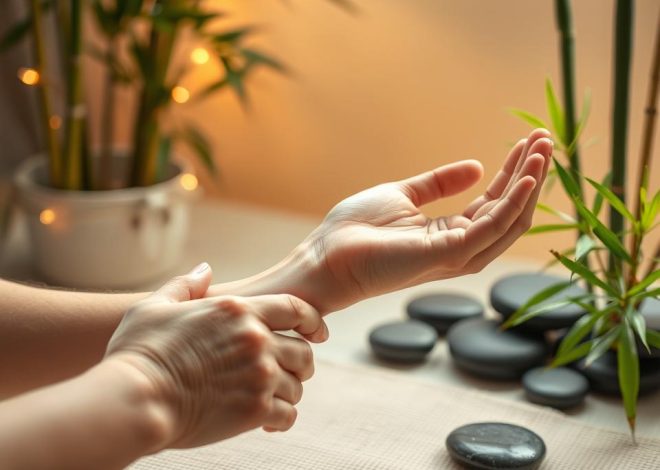
The Importance of Rest for Good Health
Rest is key to our daily lives and vital for our health. It helps us recover from the day, whether it’s a good night’s sleep, a short break, or a long vacation. This article will explore the science and strategies behind why rest is crucial for staying healthy.
Our bodies and minds need enough rest to work well. Not getting enough sleep can harm our health in many ways. By learning why rest is important, we can make it a priority in our lives.
Read more interesting information at ::i-pasta
Why is Rest Necessary for Good Health
Rest is key to a healthy life. It helps the body and mind refresh and work well. It’s not just about feeling awake; it keeps us physically and mentally healthy.
Rest helps the body fix and grow back. When we rest, our body uses energy to heal, build muscle, and refill energy. This is key to avoiding injuries, keeping the immune system strong, and staying healthy.
Rest is also good for our minds and feelings. It lets the brain sort out memories, think better, and recharge. This makes us think clearer, solve problems better, and be more creative. It also lowers the chance of feeling anxious or depressed.
“Sleep is the best meditation.” – Dalai Lama
Sleep is a big part of rest. Good sleep keeps our hormones balanced, helps control hunger, and keeps our body clock working right. Not sleeping well can lead to many health issues, like being overweight, heart disease, and losing brain function.
By making rest a priority, we help our health and happiness. This means sleeping enough and doing things that relax us. The good things about rest are many and important for staying healthy and balanced.
Benefits of Adequate Rest
Getting enough rest and quality sleep is key for staying healthy in body and mind. It boosts the immune system and helps you think better. The benefits of rest are many and important for your health.
Improved Physical Health
Rest, including quality sleep, is crucial for your body to heal and get stronger. When you rest, your muscles fix and your immune system works well. By making rest and sleep a priority, you get stronger, avoid injuries, and help your body heal.
Enhanced Mental Well-being
Adequate rest and sleep are also vital for your mind. They help you remember things better, focus, and control your feelings. Plus, rest and relaxation cut down stress, anxiety, and make you feel fresh. This lets you tackle daily tasks with more energy and clear thinking.
“Rest is not idleness, and to lie sometimes on the grass under trees on a summer’s day, listening to the murmur of the water, or watching the clouds go by, is by no means a waste of time.”
– John Lubbock
Understanding the importance of sleep and making time for rest and recovery can greatly improve your life. It brings big benefits for your body and mind, helping you do well in everything you do.
The Impact of Sleep Deprivation
Adequate rest is key for good health, but many ignore the importance of sleep. Not getting enough sleep can harm both body and mind.
Not sleeping enough hurts how well we think. Our brain can’t handle info well without enough rest. This makes it hard to focus, remember things, and make good decisions. This can really hurt productivity at work and in life.
Also, not sleeping well can lead to serious health issues. These include obesity, heart disease, and type 2 diabetes. Our body’s hormones and metabolism need sleep to work right. Without it, these important processes get messed up.
“Sleep is the foundation of a healthy lifestyle. Without adequate rest, our bodies and minds cannot function at their best.”
Sleep deprivation also harms mental health. It can make us feel more anxious, depressed, and unstable. Getting enough rest is key to staying mentally healthy and avoiding these problems.
Understanding the importance of sleep helps us fight the bad effects of not sleeping enough. By making sleep a priority, we can stay healthy and productive. Good sleep habits, managing stress, and relaxing can lead to a better life.
Recovery from Physical Activity
For those who love to stay active, rest and recovery are key. They help with muscle repair, injury prevention, and avoiding overtraining. Finding the right balance between exercise and rest is crucial for fitness and well-being.
Rest and Muscle Repair
When we exercise, our muscles get tiny tears and damage. But, it’s during rest that they fix and get stronger. Resting and recovering is essential for better performance, fewer injuries, and a healthy lifestyle.
Preventing Overtraining
Overtraining happens when we do too much exercise without enough rest. It can cause burnout, lower performance, and increase injury risk. Making recovery a priority helps avoid these problems and keeps exercise routines healthy and lasting.
| Symptoms of Overtraining | Importance of Rest and Recovery |
|---|---|
|
|
Adding enough rest and recovery to our routines helps us perform better, lowers injury risk, and keeps our fitness plans balanced and lasting.
Mental Rejuvenation through Rest
Resting our minds is just as important as resting our bodies. Taking breaks from daily life helps our minds, emotions, and mental health. It can greatly improve how we think, feel, and make decisions.
Rest helps reduce stress. When we relax, our brains can process information better, recharge, and focus again. This leads to a better mood, more creativity, and smarter decisions.
Using stress reduction techniques like mindfulness meditation or guided relaxation helps a lot with mental rejuvenation. These methods calm the mind, cut down on worries, and bring peace. This lets us face challenges with clear thinking and strength.
“Rest is not idleness, and to lie sometimes on the grass under trees on a summer’s day, listening to the murmur of the water, or watching the clouds float across the sky, is by no means a waste of time.” – John Lubbock
Adding mental rest to our daily life brings many benefits. It helps with thinking, making decisions, and feeling better emotionally. This leads to a happier and more fulfilling life.
| Technique | Benefits |
|---|---|
| Mindfulness Meditation | Reduces stress, improves focus, enhances emotional regulation |
| Guided Relaxation | Promotes physical and mental relaxation, lowers anxiety |
| Journaling | Facilitates self-reflection, increases self-awareness, and reduces rumination |
By using the power of mental rest, we can lead healthier, more balanced, and productive lives.
Stress Reduction Techniques
Keeping a good balance between work and life is key to feeling well. Stress reduction techniques are a big part of this balance. Using mindfulness, meditation, and relaxation can help lessen stress and make you feel calm and refreshed.
Mindfulness and Meditation
Mindfulness and meditation are great for reducing stress. They help you focus on the now and understand your thoughts and feelings better. This way, you can handle stressful situations more calmly.
- Try regular mindfulness exercises like deep breathing or body scans to become more aware of yourself.
- Look into different meditation types, such as mindfulness or mantra meditation, to see what suits you best.
- Make mindfulness and meditation a part of your daily life, even if it’s just for a few minutes, for ongoing stress relief.
Relaxation Exercises
Relaxation exercises are also great for reducing stress and finding calm. From yoga to progressive muscle relaxation, these activities help release tension and bring peace.
- Try out different relaxation exercises, like stretching or deep breathing, to see what you like best.
- Add relaxation exercises to your daily schedule, whether it’s during your lunch or in the evening, for ongoing stress relief.
- Play around with different relaxation techniques to find the best mix for you, as everyone is different.
Using these stress reduction techniques can help you keep a healthy balance between work and life. Remember, managing stress is a personal journey. Be kind to yourself as you find the best ways to reduce stress for you.

Achieving Work-Life Balance
Keeping a good work-life balance is key to avoiding burnout and staying well. In today’s fast world, it’s easy to mix up work and personal life. By setting clear boundaries and making time for rest, we can live a more balanced and happy life.
Prioritizing Self-Care
Self-care is a must, not a luxury. It means taking steps to look after our body, mind, and heart. This could be through exercise, eating well, or doing things we love. By focusing on self-care, we handle work and personal life better. This leads to more productivity, less stress, and a happier life.
| Self-Care Strategies | Benefits |
|---|---|
|
|
Putting self-care first helps us deal with work-life challenges. It supports our overall well-being and stops burnout. By adding healthy lifestyle habits like exercise, mindfulness, and enough sleep, we can do well at work and in life.
Preventing Burnout
Burnout is a big problem that affects both our personal and work lives. It’s important to keep a healthy lifestyle and do things that help us relax every day. This helps us stay strong and avoid the bad effects of too much stress.
One way to stop burnout is to set clear limits and manage our work well. This means saying “no” to extra tasks, giving others jobs to do, and making a schedule that lets us rest and recover. Taking short breaks, like a walk or a meditation session, can also help us feel fresh and ready again.
Living a healthy life is key to avoiding burnout. Doing regular exercise, eating well, and getting enough sleep helps our body and mind stay strong. These habits make us healthier and help us handle stress better.
Practicing mindfulness and managing stress with techniques like meditation or journaling can also help. These methods make us more aware of ourselves and teach us how to deal with life’s challenges. This leads to a better, more balanced life.
“The greatest weapon against stress is our ability to choose one thought over another.” – William James
By taking steps to prevent burnout and focusing on our well-being, we can keep a good balance between work and life. This way, we can do well in our jobs and enjoy our personal time too.
Healthy Lifestyle Habits for Better Rest
Getting enough sleep is just the start for rest and recovery. Eating well, staying active, and good sleep habits are key for your health and happiness.
Nutrition and Exercise
Eating foods that are whole and unprocessed can improve your sleep quality. Foods like fruits, veggies, lean meats, and whole grains give your body what it needs. Add in exercise like lifting weights, running, and stretching to help sleep and stay fit.
Sleep Hygiene
Having a regular sleep schedule and a sleep-friendly bedroom is vital. Try to sleep and wake up at the same time every day, even on weekends. Don’t use devices with blue light before bed, as it can mess with your sleep cycle. Make sure your bedroom is dark, cool, and quiet for better sleep.
| Healthy Habit | Benefit |
|---|---|
| Balanced Nutrition | Provides essential nutrients for overall health and better sleep |
| Regular Exercise | Promotes physical and mental well-being, leading to improved sleep |
| Consistent Sleep Routine | Regulates the body’s internal clock for better sleep quality |
| Optimal Sleep Environment | Creates a conducive setting for uninterrupted, restful sleep |
Adding these healthy lifestyle habits can really boost the importance of sleep and help your overall health.

Rest and Productivity
Many think that working more means doing better work. But, studies show that getting enough rest can boost productivity and performance. This section looks at how rest affects our thinking and work skills.
In today’s busy work world, it’s tempting to skip sleep for work. But, research says well-rested workers are sharper, more creative, and work better than those who don’t sleep well.
Rest has many benefits for work:
- Improved cognitive function: Rest helps the brain recharge, making us more focused, quick to decide, and better at solving problems.
- Enhanced creativity and innovation: A rested mind is open to new ideas and can connect dots to find new solutions.
- Reduced fatigue and burnout: Rest stops mental and physical tiredness that can slow down work and performance.
Companies that care about their workers’ well-being and support healthy sleep habits do better. By valuing rest and work-life balance, they get a more engaged, productive, and dedicated team.
| Metric | Well-Rested Employees | Sleep-Deprived Employees |
|---|---|---|
| Productivity | 20% higher | 25% lower |
| Creativity | 33% more creative ideas | 50% fewer creative ideas |
| Absenteeism | 15% lower | 50% higher |
Understanding how rest boosts productivity helps companies create a work place where employees can do their best. This leads to business success.
“The best way to increase your productivity is to take more breaks.” – Arianna Huffington, co-founder of The Huffington Post
The Role of Rest in Chronic Illness Management
For people with chronic health issues, rest is key to handling symptoms, cutting down on fatigue, and boosting well-being. Adding rest and relaxation to chronic illness care can greatly improve a patient’s life quality.
Fatigue and Symptom Management
Conditions like chronic fatigue syndrome, fibromyalgia, and autoimmune disorders bring ongoing fatigue and tough symptoms. Getting enough rest can ease these issues and help manage chronic illnesses better. By making rest a priority, people can:
- Lessen symptom severity and how often they happen
- Boost energy and physical ability
- Help manage chronic pain and discomfort better
- Support the body’s healing and recovery
Regular breaks, including short naps, easy exercises, and mindfulness, help those with chronic illnesses save energy. This makes it easier to handle daily life.
“Taking the time to rest and recover is crucial for those living with chronic health conditions. It allows the body and mind to rejuvenate, reducing the burden of symptoms and improving overall well-being.”
Adding rest and recovery to their chronic illness plan helps people manage chronic illness better. This improves their life quality.
Rest for Different Age Groups
Rest and recovery needs change with age. Each age group has its own needs for sleep and recovery. It’s important to know these needs to stay healthy and happy throughout life.
Children and Adolescents
Kids and teens need lots of sleep for growth and development. They should get 9 to 11 hours of sleep each night. Starting good sleep habits early, like a regular bedtime routine, helps them rest well. This supports their growth and keeps them healthy in body, mind, and heart.
Adults and Seniors
As people get older, their sleep needs change. Adults should aim for 7 to 9 hours of sleep each night. But, things like lifestyle, health, and aging can change this.
Adults and seniors can get the rest they need by living healthy. This means exercising, eating well, and managing stress. These habits help them stay full of life and well.


